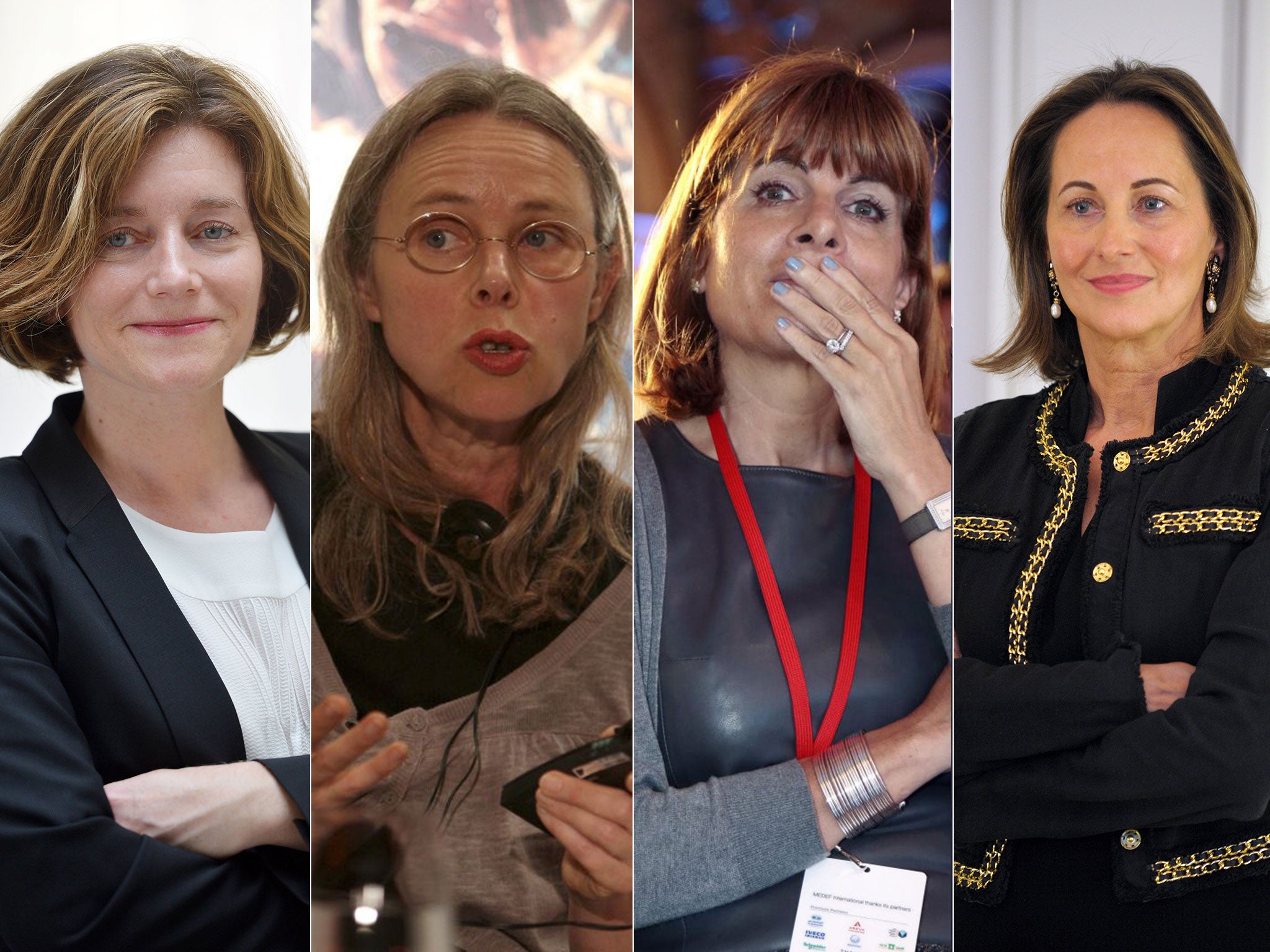Do the French have a problem accepting powerful women?
An editor and a museum director have lost their jobs. A leading politician has had to withdraw accusations of sexism. A top businesswoman is under attack. Would their male equivalents be treated the same way?

Your support helps us to tell the story
From reproductive rights to climate change to Big Tech, The Independent is on the ground when the story is developing. Whether it's investigating the financials of Elon Musk's pro-Trump PAC or producing our latest documentary, 'The A Word', which shines a light on the American women fighting for reproductive rights, we know how important it is to parse out the facts from the messaging.
At such a critical moment in US history, we need reporters on the ground. Your donation allows us to keep sending journalists to speak to both sides of the story.
The Independent is trusted by Americans across the entire political spectrum. And unlike many other quality news outlets, we choose not to lock Americans out of our reporting and analysis with paywalls. We believe quality journalism should be available to everyone, paid for by those who can afford it.
Your support makes all the difference.It has been a tough week for powerful French women. Le Monde’s first female editor was forced out. The woman director of the Picasso museum was sacked. And the Environment Minister and former presidential candidate Ségolène Royal, 60, was forced to withdraw remarks that her cabinet colleagues were sexist and arrogant.
At the same time, France’s most successful businesswoman, Anne Lauvergeon, or “Atomic Annie”, 54, former head of the nuclear construction company Areva, was savagely criticised by the state auditor.
Is this all just a coincidence? Or are they simply being picked on because they are women?
In the case of both the Le Monde editor Natalie Nougayrède, 47, and the director of the Picasso museum, Anne Baldassari, 59, the criticisms had a similar (and familiar) ring: “Bossy, authoritarian, impossible to work with, unable to delegate…”
Women have only just begun to break through to senior positions in French society. The pioneers seem to be paying the usual price of those who are the first to storm a fiercely defended citadel.
Florence Montreynaud, one of France’s leading feminist activists and writers, told The Independent: “These events are not just a coincidence. Not at all. They tell us something about France.
“It is still very difficult for a woman to be accepted in a position of power in this country. It may not always be easy for women elsewhere but it is very, very difficult in France.
“Here, if a man has a strong personality, people say: ‘Isn’t he a powerful character?’ If a woman has a strong personality, they say: ‘Isn’t she a difficult person? Isn’t she impossible to work with?’”
A Socialist woman politician, who asked not to be named, said that macho attitudes remained prevalent in French politics, even on the Left.
“If a man makes a mistake, he’s a poor politician or a poor manager,” she said. “If a woman makes a mistake, then she is the mistake. She should never have been appointed in the first place.
“I think part of the problem –and this may explain Royal’s poor press and poor poll ratings – is that this prejudice sometimes forces women to overreact and become oversensitive.
“They try so hard to survive in a male world that they fail to deliver the gentler, more consensual qualities that women can bring to business and politics.”
One woman journalist at Le Monde took a quite different view. “Natalie Nougayrède was elected editor by the staff partly because there was a feeling that it was time to give a woman a chance,” she said. “She failed because she proved unable to bring the staff along with her.
“Was that because there was resistance to her as a woman? No. It was because she was not good at the job.”
Ms Montreynaud, founder of the feminist watchdog and pressure group Les Chiennes de Garde (the “guard bitches”) acknowledges that high-profile female casualties are, in a sense, a positive sign.
“If women in high positions are being judged in the same way as men, then fine. For someone like Anne Lauvergeon to face challenges to her financial management, that’s normal.
“It is part of the process of what we’ve been campaigning for for 40 years – that women should be regarded as ‘men like any other man’.”
All the same, Ms Montreynaud argues, France, more than other countries, finds it hard to accept the idea of a “powerful woman”.
“Have you noticed, that prominent women in France are called by their first names?” she asked.
“It is always Ségolène, not Mme Royal. It is Atomic Annie, not Mme Lauvergeon. In a whole page of articles in Le Monde about Mme Nougayrède’s departure, she was constantly referred to as Natalie. That disgusts me. It is way of diminishing people, infantilising them.
“What is very difficult in France is for a woman to be both powerful and feminine. They have to dress like men, with severe suits and short hair, if they want to be half-way accepted.
“Christine Lagarde (the former Finance Minister, now IMF chief) is a good example, and I don’t mean that as a criticism of Mme Lagarde. Not at all.”
President François Hollande has insisted that half of his ministers must be women. This has, if anything, encouraged the unreconstructed macho politicians on the French right to flaunt their prejudices.
When Cécile Duflot, the former Housing Minister, appeared in the National Assembly in a prim white and blue summer dress, she was whistled and catcalled. Another female minister was subjected to hen-like gestures and cackling.
The Socialist woman politician said: “It is difficult for some French men. But the world is changing, whether they like it or not.”
Join our commenting forum
Join thought-provoking conversations, follow other Independent readers and see their replies
Comments